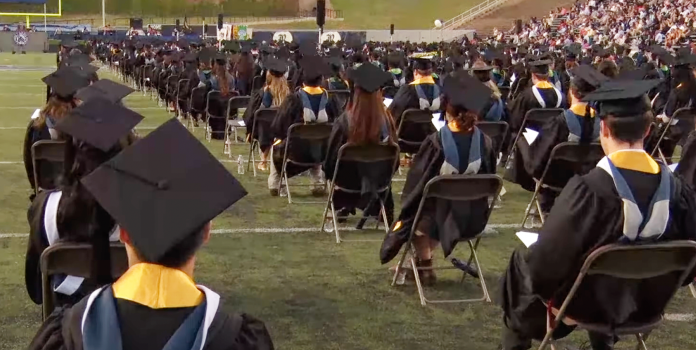(John Ransom, Headline USA) In another black eye to American academics, a new research study found that a substantial number of colleges don’t provide a good value for the dollar, reported the College Fix.
“[At] 1,233 postsecondary institutions (30 percent), more than half of their students 10 years after enrollment are earning less than a high school graduate,” said the report by Georgetown University that covered 4,500 colleges.
The study found that Georgetown itself ranked 23rd at a net present value of $2,027,000 over 40 years, with University of Health Sciences and Pharmacy in St. Louis coming in number one at $$2,680,000 over the same 40-year period.
Dayton Barber College, the Manhattan School of Music, and Beacon College followed up the rear earnings-wise.
Thirty percent of colleges are not worth the cost, researchers conclude https://t.co/AmN3u1n29l via @collegefix
— Allen Mendenhall (@allenmendenhall) March 8, 2022
“Our new ROI research does not suggest that a college degree is not necessary because a majority of students at some colleges earn less than someone with a high school diploma,” Georgetown’s research team told The Fix.
“In general, it is far more likely that a college-educated worker will have greater earnings than a high school-educated worker,” spokesperson Emma Wenzinger.
But to get a college education to work for you, you have to be willing to be patient said the study. If you want money right away, a lesser degree may be better
“Twenty-five of the 30 institutions with the best short-term net economic gains primarily grant certificates or associate’s degrees,” Georgetown noted via Yahoo.
“Because these programs require fewer credits to complete, they generally leave students with less debt and allow them to enter the workforce sooner,” it continued. “In the long run, however, the returns of these programs fall behind those of bachelor’s degree granting institutions because students’ long-term earnings are lower.”
The biggest danger is in taking out loans but never completing a college education, warns a press release by the study’s authors.
“College typically pays off, but the return on investment varies by credential, program of study, and institution,” Dr. Anthony P. Carnevale of Georgetown University Center on Education and the Workforce said.
“It’s important to inform people about the risk of taking out loans but not graduating, which could leave them without the increased earnings that would help them repay those loans.”

